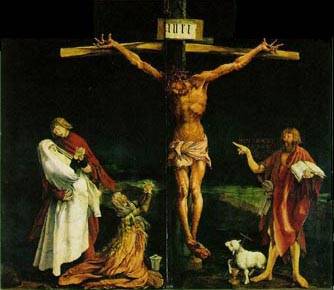Eberhard Juengal on the humanity of God in Christ:
. . . The event of God’s justifying the ungodly teaches us to recognize his divinity in the act of selfless self-commitment by God. The New Testament calls this selfless commitment by God love – and in particular – love directed towards people. In this selfless commitment, that is, in his love to people, God is righteous, he is ‘OK’, he is consistent with himself. God’s humanity is the clearest expression of his divinity, not a contradiction of it (otherwise, talking of God’s humanity would be a paradox). God does not contradict himself when he is human. Rather, he is consistent with himself when he justifies the ungodly. So, when all is said and done, the subject of the doctrine of justification is the human God.[1]
So, when God acts for us in Christ, as the Man from Nazareth, He is not acting against who He is, but actively expressing who He has always already been as Father, Son, and Holy Spirit. That’s why Jesus responds, “when you have seen me you have seen the Father.” He is the hidden God made visible in the vicarious humanity of Jesus Christ. It is fitting then that God freely chose to become human for us, insofar that what it means to be human by grace, is coordinate with who He is by eternal nature. He made us as counterpoints to worship and share in His effervescent plenitude of eternal and filial love. Jesus, for us, is the archetypal image of that, image of God, in whose image we have been re-created in, in the resurrection and ascension and coming to come.
[1] Eberhard Jüngel, Justification: The Heart of the Christian Faith (UK: Bloomsbury T&T Clark, 2014), 79.

